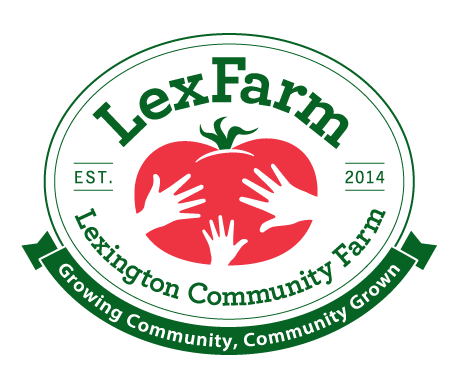NOFA Summer Conference report

Here’s what Lauren Yaffee had to say about her experience at the Northeast Organic Farming Association Summer Conference this year. Lauren manages Meadow Mist Farm, a wonderful small farm in Lexington.
“When the second week in August rolls around, my thoughts typically turn to the NOFA Summer Conference. This year, as a result of a most generous scholarship funded by The Lexington Community Farm Coalition, I was able to attend the full three days of the conference.
FRIDAY
Four of us piled into a small car and were on our way to UMass in Amherst, the location of the Summer Conference. On arrival we were handed a bound book of over one-hundred and sixty pages of general information about the lectures, workshops, animal power field days, films, the summer country fair, a silent auction, conference entertainment, exhibitors, presenters, and keynote speakers.
Needless to say, the problem became how to choose from all of this interesting and useful information. Some smart folks brought tape recorders to record one speaker while sitting down and listening to another! My first selection was “Growing Salad Greens All Year.” This was taught by Lynda Simkins, a farmer of over 30 years. She spoke about winter growing inside several greenhouses at the Natick Community Farm. She shared one of her mottos, “There should be no naked soil.”
The next class was “How to Start a CSA,” taught by Carolyn Llewellyn of Sun Valley Farm in Mahwah, New Jersey. She covered twenty different topics, emphasizing the need to be highly organized, to be prepared for all sorts of unexpected problems, and to enjoy people and have patience for them. Llewellyn emphasized that starting a CSA is not for beginner farmers. You should have every intention of staying with your business for many years and being a treasured part of the community. Friday night closed with the keynote address by Eric Toensmeier. Eric spoke about planting and growing perennial agroecosystems, using both forests and farms, and growing perennial staple crops as a way to keep farm land and the environment healthy by restoring degraded land, sequestering carbon, while provided livelihoods for farmers.
SATURDAY
On Saturday, farm manager Dan Kaplan of Brookfield Farm in Amherst Mass, offered his advanced class on CSA management. Budgets, tracking payments, printing financial reports, planning for infrastructure improvements, and evaluating the overall financial status of the farm were all covered in depth.
After that was “Biodynamic Practical Applications” by Mac Mead, Director of the Josephine Porter Institute for Applied Bio-Dynamics in Woolwine, Virginia. Mr. Mead talked about some of the biodynamic preparations that are applied to the tilled fields and the compost pile. He gave an introduction to reading the biodynamic planting calendar, to raised beds, weed management, the beneficial use of fungi, disease and pest management.
Saturday’s last class for me was “Profitability Specialty Crop Production” offered by Michael Kirkpatrick of Kilpatrick Family Farm in Saratoga. He showed slides and spoke about growing specialty crops such as ginger, artichokes, kohlrabi, parsnips, sweet potatoes, celeriac, garlic, strawberries, French beans, okra, squash blossoms, peppers, spinach, kale, leeks, pumpkins, and many different kinds of tomatoes using a grafting method.
Saturday night’s Keynote address was given by Ignacio Chapela an associate professor in the Department of Environmental Science and Policy and Management at the University of California Berkeley and Senior Scientist at the Norwegian Center for Biosafety. He has advised national governments and multilateral institutions on policy making on genetic engineering and sovereignty over genetic resources. He spoke in great detail about policy making in regards to genetically engineered food. He has been featured in several films including The Future of Food.
SUNDAY
Sunday morning I attended a course on Small Fruit given by Julie Rawson and Jack Kittredge of Many Hands Organic Farm in Barre, MA. They discussed growing all of the various types of berries on a farm including blueberries, strawberries, red raspberries, gooseberries, elderberry, grapes how to care for them, how to prune them, when to harvest them soil fertility and how to enjoy eating them.
Finally, there was a great field trip to Simple Gifts Biological Farm in Amherst, run by Jeremy Plotkin. He supplies 350 CSA members on 15 acres using nutrient dense and biological methods. He used soil drenches and foliar feeds seed inoculations and uses crop rotation to achieve this purpose.
I want to thank everyone at LexFarm for making this weekend a reality for me. NOFA conferences are places to learn the nuts and bolts of sustainable agriculture, and to make wonderful new friendships. Even if you don’t live or work on a farm, NOFA is an organization worth checking out. ” – Lauren Yaffee, Meadow Mist Farm

